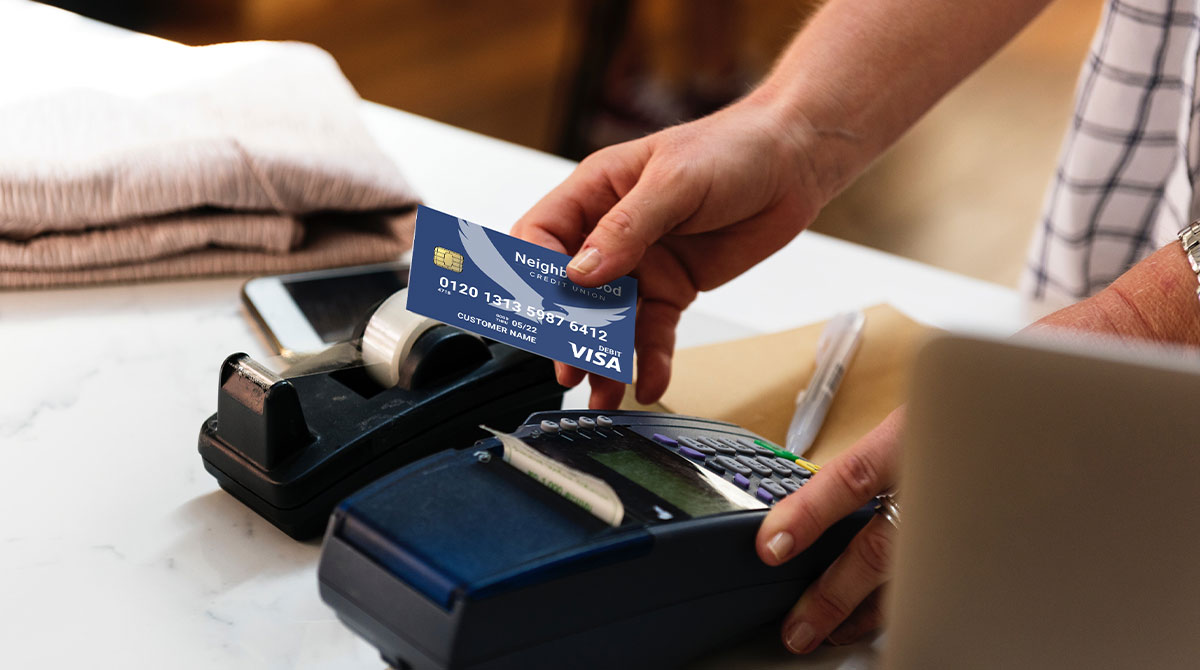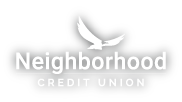What is the difference between Credit Cards and Debit Cards?
Updated: January 1, 2024
Published June 18, 2021
I will be the first to admit that when I turned 18, I did not know the first thing about credit cards. One could have told me it was the same as my debit card, and I would not have second-guessed it. Thankfully, as I have gotten older and a little bit wiser, I have learned a handful of things about credit cards. So, what exactly makes a credit card different from a debit card? Let’s find out!
What is a Credit Card?
According to Investopedia, a credit card is borrowed funds from the institution that issues the card. The person whose name belongs on the card, also known as the “cardholder,” agrees to pay the money back with interest and other stipulations, according to the institution's terms.
The interest rate at which the cardholder pays back the owed amount varies depending on the credit card company. Interest rates can be as low as 11.99% APR to as high as 36.00% APR. As of May 12, 2021, the national average credit card interest rate sits at 16.15 % APR.
A few common types of credit cards are standard credit cards, rewards credit cards, secured credit cards, and charge cards.
Standard Credit Card: A standard credit card is exactly how it sounds; it is perfect for someone who just wants a revolving balance to maintain good credit and does not care about earning points.
Rewards Credit Card: Rewards credit cards earn you points, mileage, or cash back when you make purchases.
Secured Credit Card: Secured cards can be a fantastic way to establish credit. If the cardholder keeps the balance down and pays bills on time, a secured card can help one build up their credit score and history.
Charge Card: A Charge card requires the cardholder to pay off the balance of the card each and every month, which differs from other credit cards that only require a minimum payment.
What is a Debit Card?
A debit card is a card that deducts money directly from a checking account when used. Also called "bank cards," they can be used to buy day-to-day purchases or to withdraw cash from an ATM directly from a checking account. Unlike credit cards, a debit card pulls money directly from your bank account, so you can only use however much money you have in your possession. Many may prefer debit cards over credit cards due to the fact that there are usually few to no fees attached to a debit card.
Common types of debit cards are: Standard, Electronic Benefits Transfer (EBT), and Prepaid.
Standard Debit Card: Pulls directly from your credit union or bank checking account.
Electronic Benefits Transfer (EBT) Card: Debit Cards issued by state and federal agencies for those who qualify.
Prepaid debit cards: Money is preloaded onto the card and can only spend what is available; a great option for those who do not want to pull directly from their bank account, those sticking to a strict budget, or a safe way for parents to educate their children about budgeting.
What is Each Type of Card Best For?
| Credit Card | Debit Cards |
|---|---|
| Shopping Online | Monthly Bills |
| Major Consumer Purchases (“splurge purchase”) | At the Grocery Store |
| Travel (Air Fare, Trains, Hotels) | To avoid fees that may come with Credit Cards |
| Restaurants | ATM Cash Withdrawals |
Credit Cards at Neighborhood Credit Union
Currently at Neighborhood Credit Union we offer two different credit cards with great benefits: Platinum Credit Card and Cash Rewards Credit Card.
Get 0.0% APR for 6 months on a Visa Platinum credit card, enjoy no annual fee, no balance transfer fee, and a variable interest rate of 15.50 -18.00 APR* after the promotional 6 months.1 Our Cash Rewards credit card has 1.50 cash back on all purchases, with no cash back limit, no annual fee, no balance transfer fee, and a variable interest rate of 16.50-18.00 APR.2
Debit Cards at Neighborhood Credit Union
We offer a variety of checking accounts at Neighborhood Credit Union that each come with a free debit card: Kasasa Cash Checking, Kasasa Cash Back Checking, Priority Checking, and Fresh Start Checking.
High Yield Checking is a free checking account and earns you 5.00 APY3 on up to $50,000 account balance and ATM withdrawal fee refunds. Cash Back Checking helps members earn 3% cash back at the end of each month up to $6, free checking, and ATM withdrawal fee refunds.4 Earn rewards with Priority Checking but lose the stress with no minimum balance required and up to $40 in overdraft fee forgiveness.5 Fresh Start Checking is a great option for those with a less than perfect banking history, and an opening deposit of only $25.6
Amazon Prime Day 2021
Amazon’s paid membership, also known as Amazon Prime, is hosting a mega-savings event for two days in June. From June 21-22, Prime members can get up to 50% off select amazon devices, 20% off everyday essentials, and so much more.
Using your Neighborhood Credit Union Credit Card or Debit Card during Amazon Prime Days not only secures your purchase, but depending on what type of account you have it will earn you rewards, cash back, reduce your monthly fees, and so much more!
Conclusion
Hopefully the basic differences between credit and debit cards are now a little bit clearer. Both credit and debit cards can come with rewards, and both have specific reasons as to why you would choose one over the other based on your budget and savings goals. Regardless of what you pick, Neighborhood Credit Union has many options! If you feel you are ready to take that next step and apply for the card that best suits you, apply online today in less than 10 minutes!

Must be 18 years or older to apply. Applicants under the age of 21 may require a co-signer unless independent means of repayment can be established. Introductory APR only applicable to new credit card applications. 1.99% Introductory APR for 6 months from issuance of the card on balance transfers and purchases. After the introductory period, APR will be adjusted based on creditworthiness and balance transfer fee will be at $30.00 or 3.00% of the amount of each balance transfer, whichever is greater. Rates are variable and subject to change and will be calculated based on the Wall Street Journal Prime Rate and may go up to a maximum of 18.00%. Minimum payment is 3% of total new balance or $35.00, whichever is greater. Cash advance fee is $10 or 3.00% of the amount of each cash advance, whichever is greater. Late and returned payment fee: up to $35. A Foreign Transaction fee of 2.00% will be applied in US Dollars to each transaction conducted outside of the United States. Additional limitations, terms and conditions may apply. Equal Opportunity Lender.
Must be 18 years or older to apply. Applicants under the age of 21 may require a co-signer unless independent means of repayment can be established. APR based on creditworthiness. Rates are variable and subject to change and will be calculated based on the Wall Street Journal Prime Rate and may go up to a maximum of 18.00%. Minimum payment is 3% of total new balance or $35.00, whichever is greater. Cash advance fee is $10 or 3.00% of the amount of each cash advance, whichever is greater. Late and returned payment fee: up to $35. A Foreign Transaction fee of 2.00% will be applied in US Dollars to each transaction conducted outside of the United States. No balance transfer fees. Additional limitations, terms and conditions may apply. Equal Opportunity Lender.
3High-Yield Checking qualifications that must be met to obtain the Higher Interest Rate and ATM Withdrawal and Inquiry Fee refunds include: 1. Fifteen (15) individual or combined debit card or credit card transactions of at least $5.00 or more each (transactions may take more than one day to post/settle to your account); AND 2. Have an aggregate of ACH direct deposits totaling $500 or more post and settle each qualifying cycle; AND 3. Sign up and agree to receive eStatements and decline paper statements. ATM transactions or transfers between accounts not valid for qualifying. Qualifying transactions must post to and settle account during monthly qualification cycle Qualification Cycle and Statement Cycle = the first day of the month through the last day of the month. If qualifications are met each monthly qualification cycle: (a) Domestic ATM withdrawal and inquiry fees incurred during qualification cycle will be reimbursed up to an aggregate of $15 and credited to account on the last day of monthly statement cycle; (b) balances up to $25,000 receive APY of 5.00%; and (c) balances over $25,000 earn 0.10% APY on portion of balance over $25,000, resulting in 5.00% to 1.08% APY depending on the balance. If qualifications are not met, all balances earn 0.01% APY. Minimum to open is $100. Account is free from a monthly service fee, other fees may apply. Fees may reduce earnings (see fee schedule). Limit one account per household. Federally Insured by NCUA.
4Cash Back Checking qualifications that must be met to obtain cash back rewards and ATM Withdrawal and Inquiry Fee refunds include: 1. Fifteen (15) individual or combined debit card or credit card transactions of at least $5.00 or more each (transactions may take more than one day to post/settle to your account); AND 2. Have an aggregate of ACH direct deposits totaling $500 or more post and settle each qualifying cycle; AND 3. Sign up and agree to receive eStatements and decline paper statements. ATM transactions or transfers between accounts not valid for qualifying. Qualifying transactions must post to and settle account during monthly qualification cycle. Qualification Cycle and Statement cycle = first day of month through last day of month. If qualifications are met each monthly qualification cycle: (a) Domestic ATM withdrawal and inquiry fees incurred during qualification cycle will be reimbursed up to an aggregate of $15 and credited to account on the last day of monthly statement cycle; and (b) you will receive 3% cash back on purchases up to $200 for a total of $6 per month on combined debit and credit card purchases. If qualifications are not met, no cash back payments are made and ATM withdrawal fees are not refunded. Minimum to open is $25. Account is free from a monthly service fee, other fees may apply. Fees may reduce earnings (see fee schedule). Limit one account per household. Federally Insured by NCUA.
5Restrictions apply. Priority Checking begins with a $11.99 base service charge monthly fee that can be reduced or eliminated. The fee is reduced by $1.00 each Monthly Qualification Cycle for receiving electronic statements. The fee is reduced by $.20 each time you use your debit card to make a signature-based purchase during the Monthly Qualification Cycle (purchase must be $5 or more; ATM and PIN based transactions are excluded). Qualification Cycle and Statement Cycle = the first day of the month through the last day of the month. Transactions may take one or more banking days from the date the transaction was made to post to and settle account. See the Fee Schedule here. **Overdraft Fee Forgiveness applies only to fees charged for overdraft and Courtesy Pay and is granted upon request on an annual basis. Relationship Fee refunds received during the calendar year will count toward the annual limit of $40.

Skyler has been a Marketing Content Specialist at Neighborhood Credit Union since 2019.

